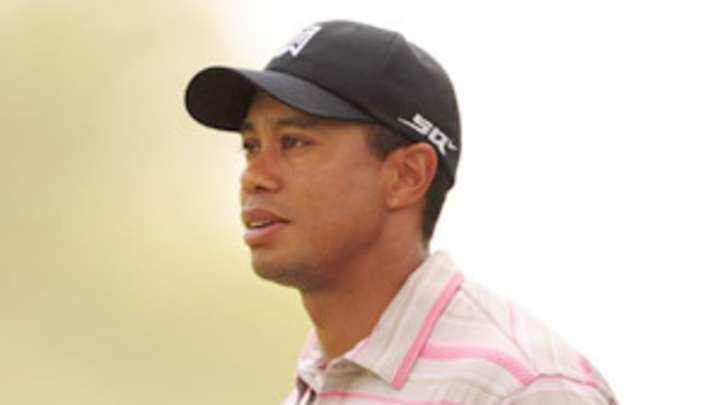To Not Know Him Is to Love Him


This story appears in the April 13, 2009 issue of Sports Illustrated.
When the Masters begins this week, we know what to expect from Tiger Woods -- the person, that is, not the golfer. He will be polite but not forthcoming, pleasant but elusive. Tiger does not Twitter or Dance with Stars or pose, brooding and shirtless, for fashion magazines. He declines nearly all media requests and named his $20 million yacht Privacy; you even need a password to read the infrequent, mundane posts on his website.
Why? Lore has it that ever since a 1997 GQ story portrayed him as being just like any other college kid, he has retreated into his shell (super-lightweight titanium, now available from Nike). And many have bemoaned this. They want to really know Tiger, to understand what makes him tick. If only he showed his human side more often, these people say, we could truly embrace him.
But I for one don't want to embrace him. Rather, I think Tiger's aloofness is precisely why he is so much fun to watch. Because we get so little from Woods, we can focus solely on his performance. I don't want Tiger to drain a huge putt and then, 30 minutes later, send out a tweet saying: OMG, WAS SOOOO NERVOUS ON THAT ONE!!! Instead, give me Tiger in the moment, cursing at his clubs, roaring in triumph or sulking like a man who cannot, will not, abide imperfection. Softer side? I like to imagine there is no softer side to Woods, that he becomes incensed at the washing machine if it doesn't properly whiten his T's, that he exchanges overexuberant high-fives with his wife after conquering the lawn with his push mower. (C'mon, Tiger would never use a riding mower.)
Think about it. When we talk about Alex Rodriguez or Terrell Owens, we talk about a lot more than baseball or football, and that's our loss. But when we talk about Tiger, we talk about golf. Will he break Nicklaus's record? Has he remade his swing? If you had straight-up odds before a tournament, would you choose Tiger or the rest of the field? (Seriously, you're taking the field?)
He's almost like an old-time movie star, one we see only in character. Even his ads stay on message. Rather than Tiger at home, goofing with the family, we see Tiger the Competitor, nailing a 50-foot chip shot, or Tiger the Sports Messiah, walking on water. It only increases the distance between him and us. Hell, his mystique is such that during the AT&T National in 2007, he sparked a round of applause when he stepped out of a portable toilet on the course, as if he'd just peed excellence.
Sure there is a trade-off. Word is that Woods is actually a pretty funny guy among friends -- when his buddy Charles Barkley went to prison for three days, Tiger sent him soap-on-a-rope. But if forgoing the personal details means we can also forgo the rest of the dreck that comes with an athlete's overexposure, then it's worth it. I used to respect Jason Taylor. Now all I can think about is the damn cha-cha.
Tiger remains first and foremost a competitor. A month ago, when he returned from knee surgery to play in the Accenture Match Play tournament, I watched as most of the Houston Rockets gathered around a small ceiling-mounted TV after practice to watch, gazing up as if Woods were Neil Armstrong. "I want Tiger to win every single time he plays," forward Shane Battier said. "But I don't want it to be easy. I want him to be pressed. I want it to come down to the end every time." Asked why, Battier said solemnly, "Because we've never seen another competitor like him, other than Michael Jordan. He never misses a putt that counts. Never."
Of course this isn't true, but it feels that way, doesn't it? And whereas MJ played a team sport, in which chemistry is paramount -- meaning he had no choice but to relate to people -- Woods doesn't, and so... he doesn't. Think this doesn't give him an advantage over his competitors? Who are you going to fear more: the affable, talented golfer who is everybody's pal, or the aloof one who can seem like a golf cyborg -- the Birdienator 2000? (What's more, on the occasions that Tiger does become emotional, like after sinking a ridiculous putt or when he hugged his father after winning his first Masters, it is all the more powerful.)
Take it from a man well-versed in the psyche of the killer competitor: Jordan's longtime agent, David Falk. "Fans get what I call functional fixity," says Falk. "They assume a player is the same way outside his sport as when playing. Tiger's a private guy, but who cares? His whole essence is to eclipse Nicklaus and win majors. It's the only reason he plays."
And, if you ask me, it's the only reason we need to watch.
